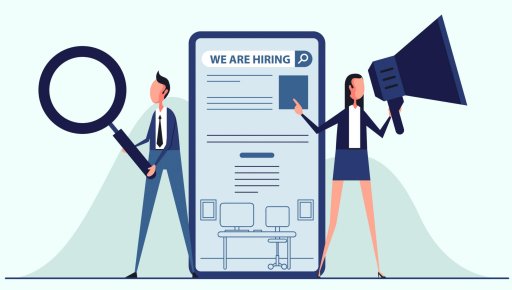Artificial intelligence is here to stay: 77% of the devices that we use have at least one form of AI technology, and 61% of consumers believe that AI will make the world a better place.1,2 In an age when artificial intelligence powers facial recognition software, powerful analytics programs, and automated machines through our cell phones, it’s no surprise that the global AI market will be worth $60 billion by 2025.3
But the rise of AI technology could also lead to a decline in manufacturing and engineering positions for experienced professionals. Artificial intelligence will add $300 billion in value to the supply chain management and manufacturing industries, more than any other industry in the global economy. When productivity and efficiency are of the upmost importance, many wonder if human employees can keep up with intelligent machines.
At the dawn of the 4th Industrial Revolution, it is more important than ever for manufacturing candidates to understand the role that AI will play in their future careers. If you are searching for a new job as an engineer, technician, or scientist, this list of artificial intelligence trends will help you prepare for a long and lucrative career in the manufacturing industry:
Front-Line Employees Are Being Replaced By Automated Machines
Accenture predicts that AI technology will enhance business productivity by up to 40%.4 In some industries, like marketing and sales, machine learning is the driving force behind this drastic change; in manufacturing, the rise in productivity is tied to automated machines, or robots, that are capable of performing complex tasks without direct supervision.
But the need for human-robot collaboration will rise as manufacturing companies look for front-line staff that can perform tasks that AI can’t, like research, troubleshooting, and repairs. Job seekers should search for positions where employees work and respond to problems with automated machines, instead of looking for ways to replace them.
IoT Is Everywhere
As automated machines take over manufacturing and distribution facilities, the internet of things is being integrated into every step of the supply chain. IoT technology is bridging the divide between the internet and machinery, with devices, sensors, and robots that can communicate with one another without human interaction and provide data for end-users thousands of miles away.
IoT technology is good at detecting problems and responding within the parameters that were specified, but at the end of that process, a human being will still have to interpret the results and develop a high-level solution to a series of technical issues. Job seekers who are interested in the internet of things should focus on manufacturing and engineering jobs where they will be asked to manage projects, interpret data, and maintain IoT technology.
Machine Learning Will Lead To New Job Opportunities
In 2017, the Data Dilema Study found that 12.5% of a person's average working week — or 11 days over a 1 year period — is lost in data collection.5 That is a serious drain on money and manpower for manufacturing companies, who rely on analysts to study data and accurately predict their future performance. AI technology with machine learning capabilities can complete the same tasks in seconds, turning hours of route work into rapid calculations.
Manufacturing professionals will never be able to compete with a computer when it comes to speed, but they have the knowledge, experience, and human insight that employers need to handle high-level analyses. Businesses aren’t ready to trust a machine with expensive business and marketing decisions, and employees who want to get to the next level of their company’s organizational ladder can become analysts, accounting/finance staff, operational support, or project managers.
AI Is A Good Thing For Engineering & Manufacturing Professionals
As AI technology replaces some employees, it provides new opportunities for others. Gartner predicts that 2.3 million jobs will be created by 2020 because of artificial intelligence, despite the loss of low-level technical positions.6 Manufacturing companies are searching for skilled employees who can fill these positions now, before the process of installing, responding to, and maintaining AI technology becomes too difficult for them to manage on their own.
If you are looking for a job in the manufacturing industry, our staffing agency can help you find your next position. Click on one of the links below to find a job in your area:








